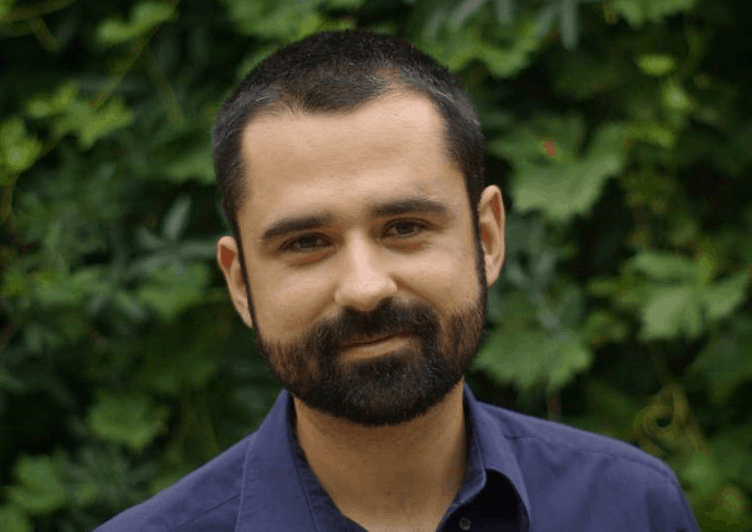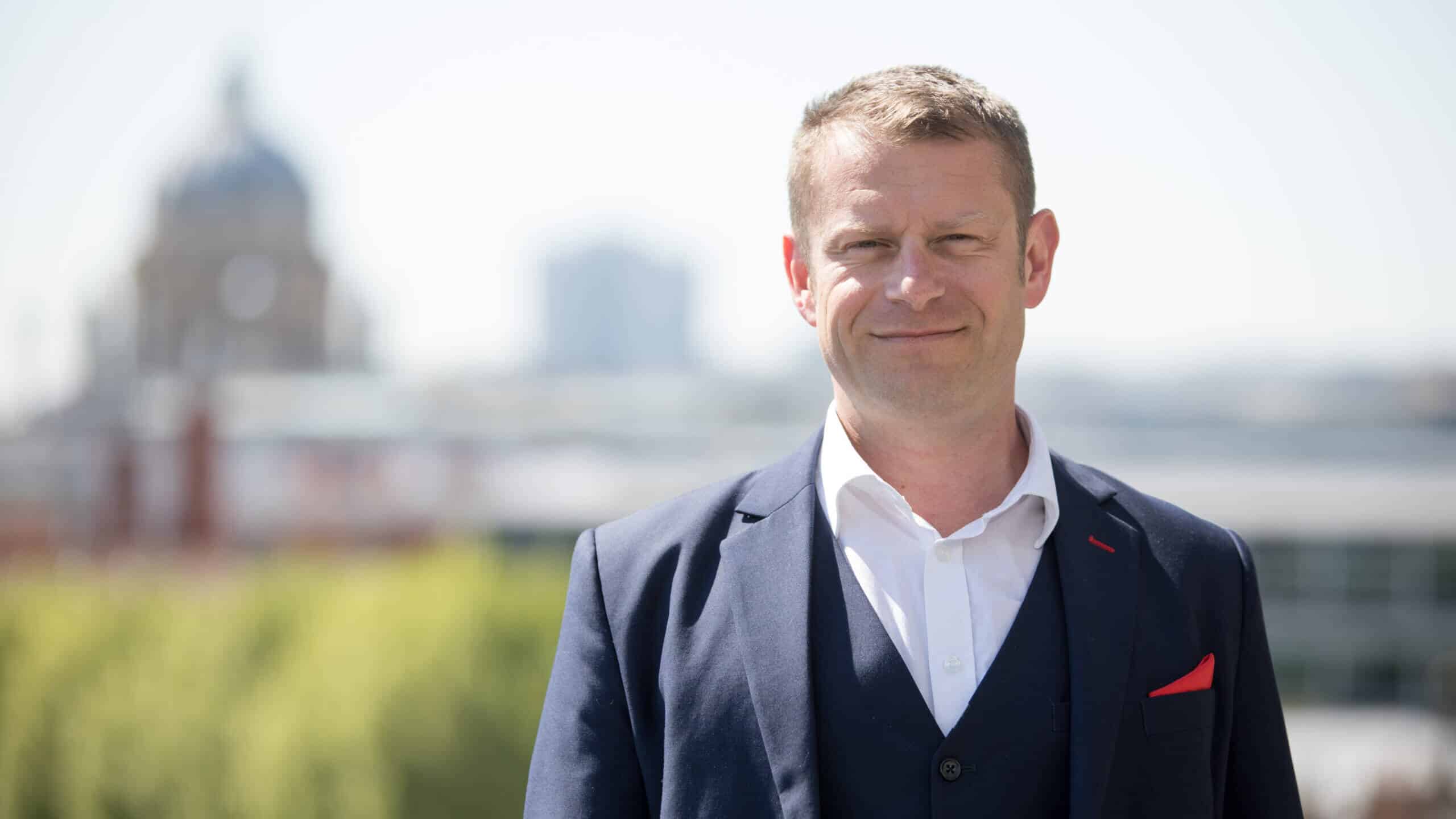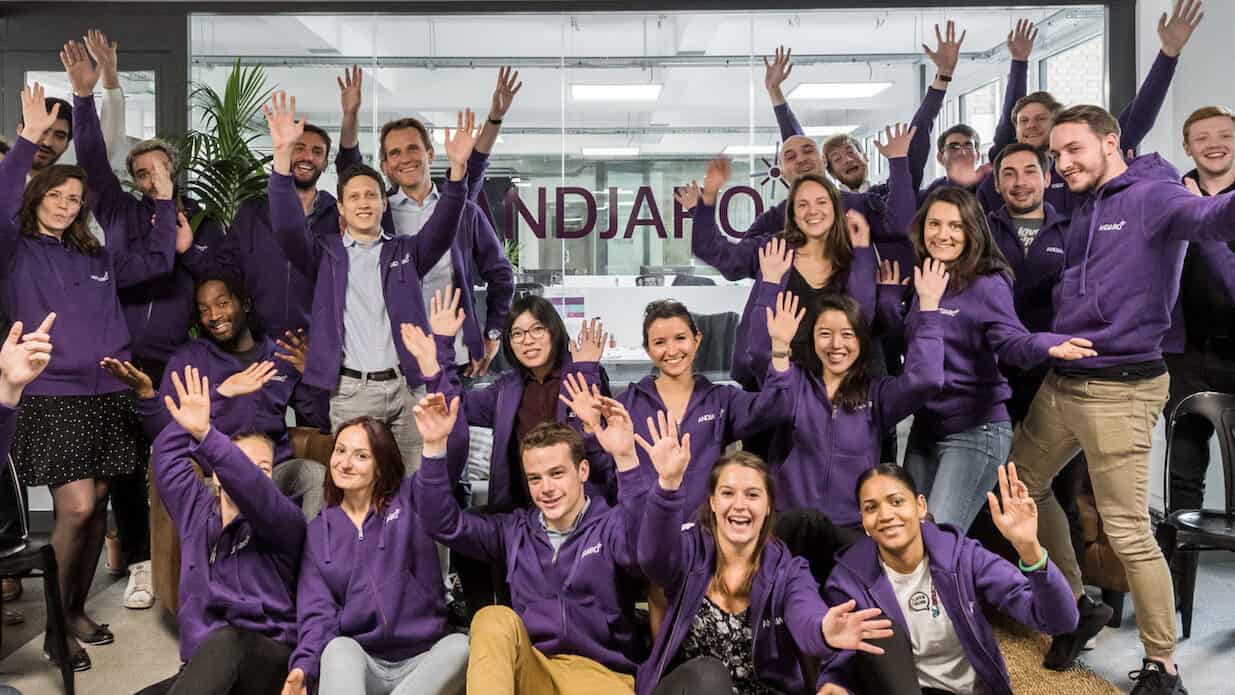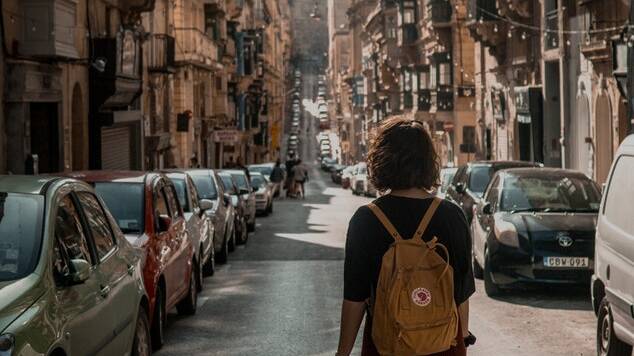As a child, Antoine Hubert counted butterflies, now he grows worms. Having raised USD 425 million so far for an asset-heavy industrial startup makes him stand out among European entrepreneurs.

Chairman and CEO, Ynsect
Antoine Hubert co-founded Ynsect in 2011 with Jean-Gabriel Levon, Fabrice Berro and Alexis Angot. Prior to Ynsect, Antoine worked for 5 years in the fields of biomaterials and environmental risks. He graduated from AgroParisTech with a Master in Ecology.
Ynsect is a company that cultivates mealworms and converts them to food for fish farms, domestic animals and humans. Its first pilot plant in Dole, France, produces 1’000 tons of insect ingredients per year. 2020, the first large-scale production plant in Amiens will debut its production of 100 000 tons per year. Ynsect has raised USD 425 million so far.
Where does your interest in Ecology come from?
I grew up in the Savoie region, close to the Alps. Nature fascinated me when I was a kid and counted butterflies. Protection of the environment was an important topic when I grew up, and still is. I studied ecology and environmental sciences to study the pollution caused by humans and find ways to reduce it. When I worked in the Carribean and New Zealand, I discovered the use of earthworms as a means to recycle organic waste. I later co-founded Worgamic, a non-profit organization that promotes urban farming and composting with the help of worms.
“Fundraising is never easy, no matter if you need to raise 1 or 100 million.”
The company Ynsect produces mealworms and processes them. Historically, fish farms have used by-catch to feed their animals, and Ynsect proposes an alternative. Is reducing overfishing the main impact of Ynsect?
It is one important aspect, but not the only one. Indeed, the products resulting from the processing of insects such as the Tenebrio Molitor, can be an alternative to fishmeal: we can help reduce the amount of fish that needs to be caught to raise 1 ton of farmed fish by 5 tons. Insect meal as nutrition is not only an additional, efficient resource, it has been shown that with the insect protein, mortality in farmed fish is reduced by 40% and it reduces the amount of antibiotics that is needed to raise fish. Health benefits also play a role in using insect meal to feed cats and dogs. Our plant produces not only fish meal, but also fertilizer, and if you calculate the carbon footprint of the full food chain, we create with our vertical farm, it is actually negative. We avoid and sequester more of CO2 than we emit.
Your mealworms have a lot of competitors that want to take its place. There are startups that cultivate soldier flies, crickets, buffalo worms, even bacteria with the same goal.
For us, the choice was clear because the mealworm is not just an excellent source of proteins, it also has a unique set of advantages compared to the alternatives in terms of health and nutritional benefits to animals, plants and human beings. Our insect has been bred for several decades for pet market, zoos and fish feed and today for human consumption. Mealworm is composed of 72% high quality proteins, contains nutrients essential to humans, pets, fish and plants health such as omega 6 polyunsaturated fatty acids and vitamins. Also, it doesn’t fly, so we can build vertical farms that don’t take up that much space.
You have raised USD 425 million from venture capital firms around the globe, even from actor Robert Downey’s Footprint Coalition. Do you sometimes panic when you think about the sums involved in your project?
No, because the money isn’t on my account (laughs). It’s just the sums that are needed to build large-scale plants full of technology that automate the hatching of the eggs, the rearing of the worms, the harvesting and the farming. It’s true that it is quite novel for a French startup to raise such sums though. But when I compare it to what plant-based food startups have recently raised in the US, it’s not even that much.
What are the most important lessons you’ve learned in the past decade as an entrepreneur?
It is very important what kind of people you choose to work with. Hire people that are better than you and don’t let ego stand in your way. Also, be open for help and coaching. When it comes to investors, you don’t always have the choice with whom you want to work with, but if you do, choose those that share the same values and vision.
What exit routes are you thinking about?
We didn’t build Ynsect with the goal to sell the company, we built it with the goal to become the global leader. And we’re just getting started. Today we have two plants one in France one in the Netherlands. Our third production plant in Amiens will gradually come online in 2022. We will almost certainly build one in the US in the near future, and then there is Asia to think about. The opportunities before us are virtually endless. A logical exit route for Ynsect could be an IPO.
Ynsect recently acquired Protifarm, a manufacturer of insect-based premium food for humans. What was the rationale for that?
It strengthens our position because it opens up a new market that is poised to grow exponentially, and it allows us to add a manufacturing plant and intellectual property to our portfolio.
As you said before, it’s unusual for a French startup to raise this kind of money. Do you sometimes envy software entrepreneurs that need a fraction of this capital to build something?
Fundraising is never easy, no matter if you need to raise 1 or 100 million. And the French startup ecosystem has produced great success stories like Blablacar, Criteo or Doctolib. There is much more visibility around what’s going on in France thanks to initiatives like the French Tech Next 40/120, which showcase scaleups with the potential to become global leaders. But there is no way around it, industrial deep tech is capital intensive, and you need to find investors that are really patient. But for me, this is also a field where French and indeed European startups can really leave a mark and differentiate themselves from startups in the US and China. Take the example of the Swedish battery manufacturer Northvolt which has raised over 3 billion in equity and debt so far. Its factory in Sweden will be powered by 100% clean energy and is one of the biggest industrial investments in Europe. When it comes to environmental impact, the world is looking to Europe, and increasingly also in new domains such as quantum technology. Silicon Valley has no monopoly on innovation. It has become somehow too elitist, and too expensive. Today, capital and ideas are distributed around the world.
Written by
WITH US, YOU CANCO-INVEST IN DEEP TECH STARTUPS

Verve's investor network
With annual investments of EUR 60-70 mio, we belong to the top 10% most active startup investors in Europe. We therefore get you into competitive financing rounds alongside other world-class venture capital funds.
We empower you to build your individual portfolio.
More News
21.04.2021
“The French startup ecosystem is now on a whole different level”
Philippe Tramoy from Seventure Partners talks about deep tech startups in France, Seventure’s co-investments with Verve Ventures and why thinking internationally from day one is important for French startups. Seventure Partners, based in Paris, is a leading venture capital firm with EUR 850 million assets under management.
15.06.2020
“Our goal is to become a global leader”
Temporary staffing firms have grown big by providing a quick fix to absences in a workforce. Andjaro helps large companies tap their internal resources instead and save a lot of money. In this interview, Andjaro’s CEO Quentin Guilluy explains how this works.
18.03.2019
“We fought seven years to get to our first million users”
Frédéric Mazzella built the world’s most successful carpooling company, BlaBlaCar, which is also one of the few European unicorns. We talked to him about buses, France as a startup country and his investments as a business angel.
Startups,Innovation andVenture Capital
Sign up to receive our regular newsletter and learn about investing in technologies that are changing the world.




